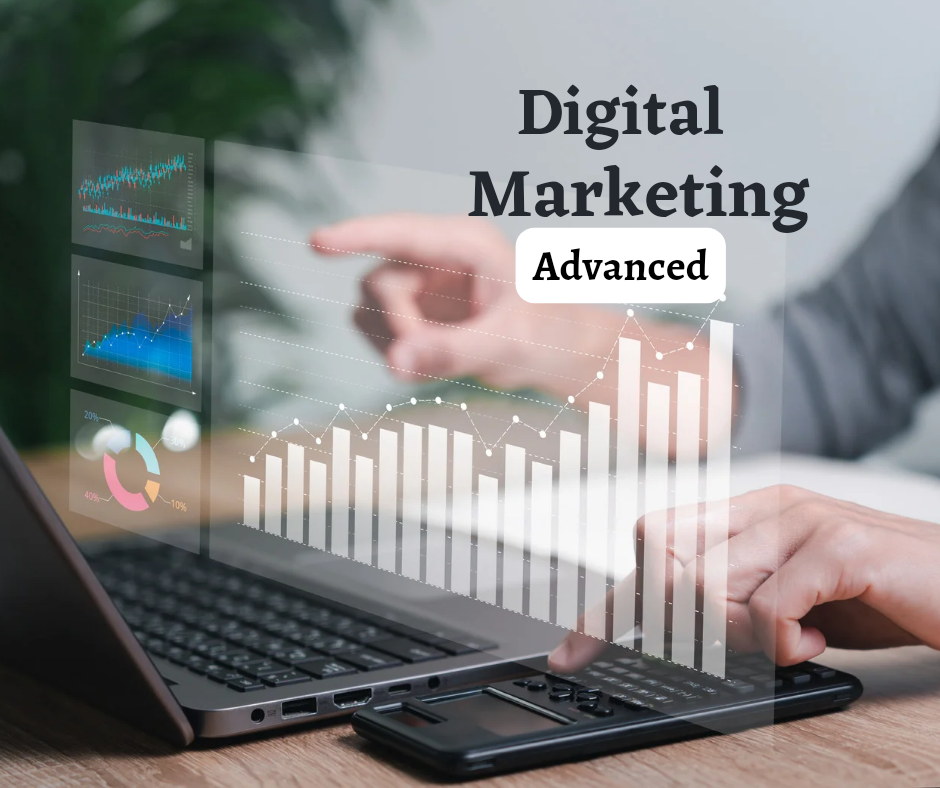Course description
What you'll learn.
Advanced Search Engine Optimization (SEO): Dive deeper into SEO techniques and strategies, including technical SEO, advanced keyword research, content optimization for search intent, schema markup, local SEO, and international SEO. Learn how to analyze search engine algorithms and stay updated with SEO trends.
Advanced Pay-Per-Click (PPC) Advertising: Master advanced PPC advertising platforms like Google Ads and Facebook Ads. Explore advanced targeting options, bid strategies, ad extensions, remarketing, audience segmentation, and campaign optimization techniques to maximize ROI and ad performance.
Conversion Rate Optimization (CRO): Learn advanced CRO techniques to optimize website conversion rates and improve user experience. Explore A/B testing, multivariate testing, user behavior analysis, heatmaps, and usability testing to identify and implement conversion optimization strategies.
Advanced Social Media Marketing: Deepen your understanding of social media marketing by exploring advanced strategies for major platforms such as Facebook, Instagram, Twitter, LinkedIn, and YouTube. Learn about social media advertising, influencer marketing, social listening, and advanced analytics for measuring social media ROI.
Advanced Content Marketing: Explore advanced content marketing tactics to create high-quality, engaging content that drives traffic, engagement, and conversions. Learn about content distribution strategies, content amplification, evergreen content creation, and measuring content performance with advanced analytics.
Advanced Email Marketing: Dive deeper into email marketing automation, segmentation, personalization, and dynamic content. Learn how to implement advanced email marketing strategies to nurture leads, improve customer retention, and drive revenue growth through email campaigns.
Advanced Analytics and Data Visualization: Enhance your skills in data analysis and visualization by exploring advanced analytics tools and techniques. Learn how to analyze complex data sets, derive actionable insights, create custom reports and dashboards, and make data-driven decisions to optimize digital marketing campaigns.
Advanced Marketing Automation: Gain expertise in marketing automation platforms and workflows to streamline marketing processes, nurture leads, and improve campaign efficiency. Learn how to create advanced automation sequences, lead scoring models, and personalized customer journeys across multiple channels.
Advanced Digital Marketing Strategy and Planning: Develop advanced digital marketing strategies and plans aligned with organizational goals and objectives. Explore topics such as budget allocation, resource allocation, campaign scaling, risk management, and forecasting for digital marketing initiatives.
Ethics, Compliance, and Privacy in Digital Marketing: Understand the ethical considerations, legal requirements, and privacy regulations relevant to digital marketing practices. Learn how to ensure compliance with laws such as GDPR, CCPA, CAN-SPAM Act, and ethical guidelines for data usage and marketing practices.
Emerging Trends and Technologies in Digital Marketing: Stay updated with the latest trends, technologies, and innovations in digital marketing. Explore emerging trends such as voice search, artificial intelligence (AI), chatbots, virtual reality (VR), augmented reality (AR), and blockchain technology, and their implications for digital marketing strategies.
Capstone Project and Portfolio Development: Apply your advanced digital marketing skills to a comprehensive capstone project that integrates various aspects of digital marketing, from strategy development to campaign execution and measurement. Build a professional portfolio showcasing your expertise and accomplishments in digital marketing.
Join our forums to stay updated.




